Sound–Makers: technologies, practices and cultures
Keynotes
Peter Kirn (Editor–in–Chief, CDM: Create Digital Music) http://cdm.link/
Dr Teresa Dillon (Artist–Researcher, Professor of City Futures, School of Art & Design, University of the West of England, Bristol) http://www.polarproduce.org
Dr. Luca Forcucci (Newly added Artists Keynote) http://lucalyptus.com/
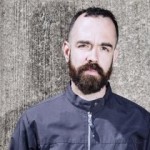
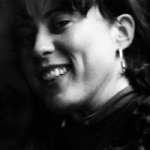
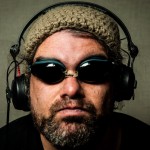
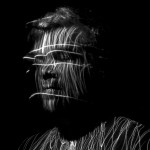
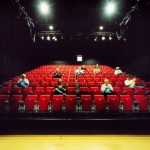
Creative audio and visual practices are increasingly moving from the digital sphere into the ‘real’ world––moving from bits to atoms (Ishii and Ullmer, 1997)––as physical computing technologies continue to become more widely affordable and accessible. Custom–made and repurposed controllers, gestural interfaces and intentionally hackable or reconfigurable instruments now support the creation and control of music and audio-visual media outside the mouse and keyboard paradigm and beyond normative models based on previously–established practices.
These technologies are increasingly being championed by grassroots movements which are driven by the designers, makers and creators who build and use them. Maker groups, festivals and social spaces––frequently more diverse and inclusive than established communities within academia and industrial R&D––have emerged to engage new creators and audiences through music, visual and sound art performances. Spanning disciplines such as controllerism, modular synthesis, interface design, circuit bending and live sound art, many practitioners and researchers are increasingly looking beyond code, bringing, integrating sensors and soldering within their classroom, stage and studio practices.
The Irish Sound, Science and Technology Association (ISSTA) invites makers, creators, performers, thinkers and researchers to come together to share their insights on this emerging field.
Perspectives on our call may include (but are not limited to) the following:
- New creative approaches using self-designed or hacked controllers
- Maker movements and the democratisation of technology
- The gendering of maker spaces/hackspaces and/or other questions of inclusivity or exclusion
- Communities and maker spaces/hackspaces: chronicling experiences of establishing maker spaces and scenes
- Open culture and creative technologies: sharing code, technologies and practices
- Making/hacking and sustainability: installations and electronic music practices using recycled equipment
- The Global West (or North) and the rest? Differences in global experiences of maker culture and spaces
- Maker/hacker approaches and developments in education
We welcome the submission of papers, artworks, compositions/performances and workshops on these ideas and related topics for presentation at the 7th ISSTA Festival and Conference on Sound, 7th-8th September 2017, at Dundalk Institute of Technology (DkIT).
Late Night ISSTA and Patchblocks PBMix giveaway
This year, ISSTA will feature a special ‘after hours’ club night, featuring a special live set from one of Irelands leading proponents of electronic music Dunk Murphy, AKA Sunken Foal.
This gig takes place in legendary Dundalk venue, the Spirit Store and is free to all conference participants!
Late Night ISSTA is kindly sponsored by the Spirit Store and Patchblocks, an Irish based producer of music technology hardware (www.patchblocks.com).
Patchblocks are also supplying a prize for one lucky (registered!) conference participant of their brand new PBMIX-3 mini mixer!
Programme
Getting to Dundalk IT
Buses travel on either daily or weekly schedules from all the main centres in the region. The main Bus Eireann station in Dundalk is approximately a 15 minute walk from the campus. Travelling to Dundalk Institute of Technology by plane, train, car or bus should be easy if you follow the steps in the information found here.
From The Airport
Taxi
35-40 minute journey of approx 40 miles.
Bus
Buses Travel directly from Dublin Airport to Dundalk.Check out schedules on the Bus Eireann website link. There is also a bus from the airport that stops right outside the college.
Car
Follow the M1, direction north towards Belfast. Take Exit 16 and follow the signs to Dundalk. Turn left at XEROX junction. DkIT is half a mile along on the right hand side. See here for more details and interactive journey planning.
Train Services
Dundalk is served by the mainline train route between Belfast and Dublin.Trains run daily. Check out schedules on the Irish Rail Website link.
The Institute is a 25 minute walk from Dundalk’s Clarke Train station.
Travel by Car
Check out the AA website or Google Maps to plan your journey.
Bus Services
There are regular bus services from all the main local and regional centres to Dundalk. The Institute is a 35 minute walk from Bus Eireann’s main terminus in Dundalk town centre.
Find out more information on bus companies servicing DkIT using the following links:
- http://matthews.ie/
- http://www.royalbreffnitours.com/dundalk/
- http://www.finlaycoaches.com/
- http://www.halpennytravel.com/
- http://www.buseireann.ie/
DkIT is not responsible for any inaccuracies below or on any of the above links.
Further details available at: https://www.dkit.ie/dundalk-institute-technology/about-dkit/getting-dkit
Accommodation
Equidistant between Belfast and Dublin, with excellent flight, public transport and motorway connections with both cities, DkIT is an education hub for creative technologies in Ireland’s Eastern Corridor region.
Crowne Plaza:
The Crowne Plaza Hotel is adjacent to DkIT and is offering a special delegate rate of €105 BB per night. Please quote code ‘ISS’ when booking: http://www.cpireland.crowneplaza.com/dundalk/
There are also number of excellent Bed & Breakfast’s in Dundalk, check for proximity to DkIT’s campus:
Other Hotels
Bed and Breakfast
- Ardrose
- Arlee House
- Greengates
- Fairlawns B&B,
- Innisfree Guesthouse
- Keernaun House
- Little Haven Bed and Breakfast
- Lynolan House
- Rosemount B & B, Dublin rd, Dundalk
Participants are responsible for their own travel and accommodation and, where relevant, transport of materials; as a small, subscriber–funded organization, we are unable to provide artists’ fees but we do aim to keep registration fees as low as possible.
Registration Costs
Registration for ISSTA 2017 is required for participation.
Registration fees are as follows:
- Professional: €70 (€40 registration + €30 ISSTA membership)
- Postgraduate student: €50 (€30 registration + €20 ISSTA membership)
- Undergraduate student or unwaged: €25 (€15 registration + €10 ISSTA membership)
- Non-members €80
The registration page will open July 4th.
Non-Members can register for the conference HERE
Members can register for the conference HERE
Chairs and Organising Committee
Chair of ISSTA 2017: Dr Niall Coghlan
Chair of Papers/Posters: Dr Caroline O’Sullivan
Chair of Workshops: Rory Walsh, Kelly McErlean
Chair of Sound Art/Installations: David Stalling, Kieran Nolan
Chair of Music: Dr Neil O’Connor, Claire Fitch
President of ISSTA: Dr Linda O Keeffe (Lancaster University)
Vice–President of ISSTA: Dr Brian Bridges (Ulster University)
Treasurer of ISSTA: Dr Jacqueline Walker (University of Limerick)
Secretary of ISSTA: Dr Alan Dormer (University of Limerick)
Web/PR Editor, ISSTA: Dr Stephen Roddy (Trinity College Dublin)
Join us for @ISSTA_ie ’17 Sound-Makers: Technologies Practices & Cultures w/ @peterkirn @TeresaHacks Luca Forcucci & @SunkenFoal @DkIT_ie pic.twitter.com/qa8nsXCkTT
— ISSTA (@ISSTA_ie) August 10, 2017
 Sunken Foal
Sunken Foal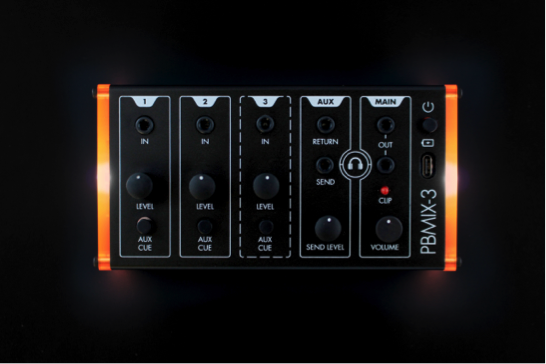 Patchblocks PBMIX-3
Patchblocks PBMIX-3